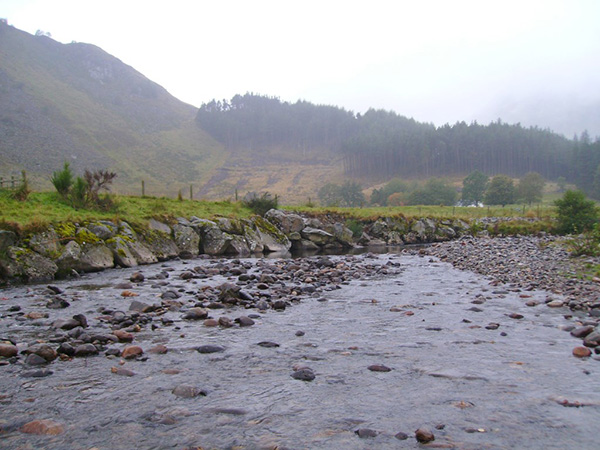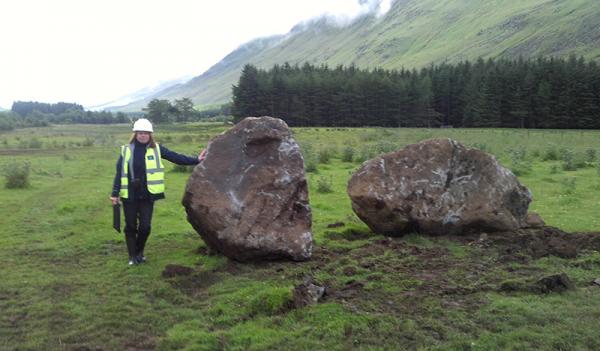

Pearls in Peril | South Esk & White Water
Objectives
Pearls in Peril (PiP) is a UK-wide project, bringing together 22 partner organisations to restore habitats benefiting freshwater pearl mussels and salmonids. A total of 48 actions will be delivered across 21 rivers designated as Special Areas of Conservation (SACs) for freshwater pearl mussel in order to secure the long term survival of mussel populations.
What changes can people expect to see in the catchment as a result?
Around 5.5km of riverbank has been enhanced by riparian woodland planting, utilising SRDP Rural Priorities funding.
In June 2015, the Quharity Burn Riparian Enhancement project, a partnership between PiP and Angus Environmental Trust, was completed. ~6km of banks were protected by buffer strip fences to mitigate diffuse pollution from agriculture; 3000 trees planted in protective shelters to enhance the riparian zone; and a pasture pump and 7 troughs installed to replace instream waterings for livestock, to remove the risk of poaching from the riverbanks.
Throughout the catchment additional woodland creation is currently being planned utilising PiP funds.


What benefits do the works have for the catchment, the local community, biodiversity etc.?
Protecting and promoting this critically endangered native species will help to restore the river to a more natural state, improving the ecological resilience and strengthening biological diversity. The planting of trees along the river banks will reduce erosion making for safer, cleaner watercourse.
How are you involving the local community?
Combatting illegal activities and raising awareness of freshwater pearl mussel conservation is crucial to safeguarding mussels in Scotland. The 'Pearls in the Classroom' programme has been implemented in primary schools in Deeside and Angus, and a number of Riverwatch schemes have been launched that raise awareness of wildlife crime affecting freshwater pearl mussel and how to report it.
Engagement with landowners, tenants and fisheries managers helps to gain support and approval to invest in river habitat creation. Awareness-raising workshops on diffuse pollution have been held, farmers and land-owners have been contacted to see if they are interested in project involvement/SRDP applications.
How does your work link in with other activities in the catchment?
Improving the river habitat for mussels also improves it for other species.

By Pdreijnders (Own work) [CC BY-SA 3.0]

Time Scale
The project was approved in September 2012 and will run until September 2016.
Funding
The project is funded through the EU Life scheme.
How the work fits with local and national policy
Freshwater pearl mussels (FWPM) are critically endangered internationally and are protected by International, European, and national legislation.
More information:
http://www.pearlsinperil.org.uk/

